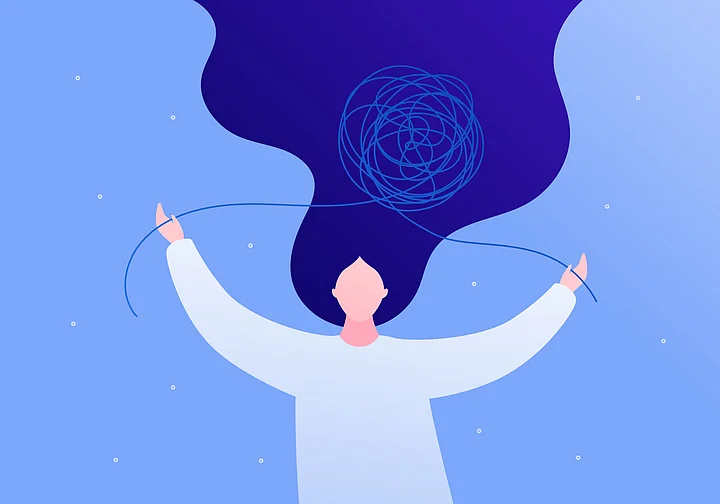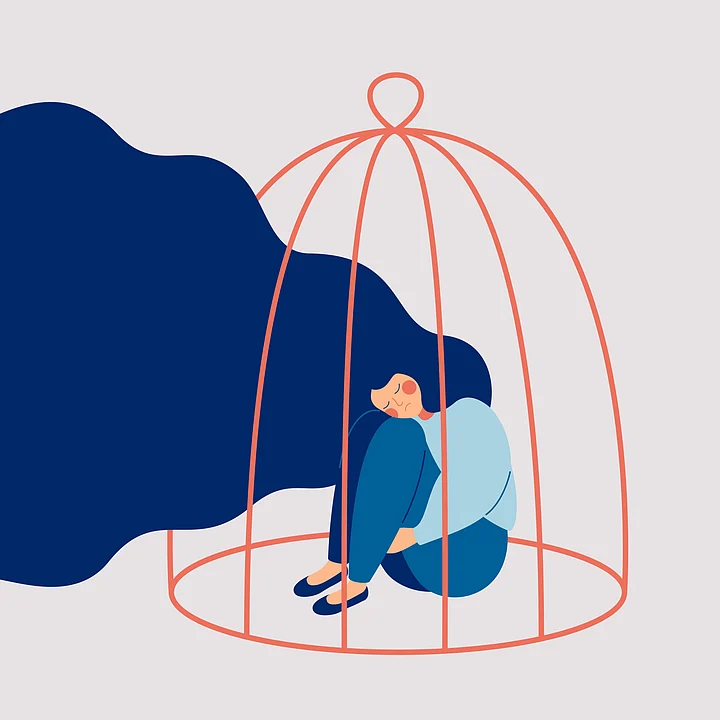“Why don’t you try yoga or meditation instead of taking these medicines?”
When in the year 2021 your chemist proffers this unsolicited advice along with the much-maligned meds over the counter, you know nothing has really changed in the world of mental health in over three decades.
The year was 1986.
A series of traumatic events triggering debilitating depression compelled me to visit a psychiatrist for immediate relief. I had virtually no knowledge about the disease or its treatment or even whom to go to for help. In the pre-internet era, awareness about mental health disorders was limited to what you read in random articles in magazines; newspapers did not bother to give any space to such topics unless it was sensational in nature, as for example a troubled actress’ paranoia, covered with the customary media insensitivity.
Someone usually suggested a name and you trusted it (and your gut) and went along. Certainly there was no way one could do any due diligence at the time.
I do know however that if anyone had forewarned me when I was walking up the rickety steps to that cramped clinic on the first floor that I would return many times in successive years, I might not have actually taken that first step towards treatment.
I learnt much later—the hard way—that there isn’t really a cure for depression, one lives with it, befriends it, takes on the troughs and valleys and rides the curve as best one can.
But in 1986 I was young and confident I could overcome this constant feeling of malaise and unhappiness by the next week, or the next, or just after Problem X is over, or Event Y gets completed. It never happened. Depression takes root without your even knowing how far it is embedded in your psyche. And so I diligently climbed up and down those stairs often wondering (and wishing) when it would be the last time I did so.

"One lives with depression, befriends it, takes on the troughs and valleys and rides the curve as best one can."
(Photo: iStock)
Medication, and Nothing Else
Medication was the usual and fastest route at that time, the regular fallback, the SSRIs (Selective Serotonin Reuptake Inhibitors) that often caused you to gain weight (sometimes making you feel worse); side effects that were little known then but are considered far more serious today. Since a psychiatrist was the only viable and legal method of getting medication, that’s who you consulted. Sometimes you heard talk of ECT for drug-resistant depression and you felt relief that you weren’t ‘that bad’, having been brought up on films depicting ECT horrors!
Therapists and counselling were limited to the more traditional forms such as psychoanalysis, there was little or no recourse at that time to options such as Cognitive Behaviour Therapy (CBT), or alternatives such as rTMS (Repetitive transcranial magnetic stimulation) which have no stigma attached to it.
Three decades ago nobody ever got to know if you were consulting a psychiatrist--not your friends, not your family (except perhaps immediate family) and certainly not your employers. Doctors had separate exits so that patients did not run the risk of getting ‘found out’!
In case there was just one exit, you stood with your back to the entrance, looking out the window as if you were just a passer-by, avoiding any eye contact at all.
You didn’t have any access to support groups because who’d admit to being depressed or to needing support? Sometimes you even had to defend your right to medication and a doctor—“This doctor has ruined your life with these terrible medicines. Why don’t you join an exercise class, you’ll feel much better?”
You just sucked it up, took your meds and proceeded to behave as if all was well. You put on masks, you worked harder on the days you couldn’t get out of bed to over-compensate, you succeeded in all your goals as a high-functioning professional despite your depression. You never ever made allowances for your ill-health or took a ‘mental health day-off’, that’s how the world was in those times—unforgiving for depressives in terms of stigma, resources and responses.
What's Changed, What Needs to Change

More conversations about mental health, therapists and psychologists, platforms where people can share their stories without shame or gaslighting.
(Photo: iStock)
So what’s changed (or needs to change) in these last 30-35 years on the mental health landscape—or land mine—from the patient’s point of view?
More options—in conventional treatment though SSRIs are still the default choice for many, you also have access to SNRIs (Serotonin and Norepinephrine Reuptake Inhibitors) and other meds with a better understanding of side effects profiles; you have therapists and counsellors even though the meagre numbers scarcely dent the treatment gap that exists in India.
Most significantly, more conversations about mental health, therapists and psychologists, platforms (such as Sanity by Tanmoy and others) where people can share their stories without shame or gaslighting.
Today’s Gen Next, at least those of a certain (moneyed) section/class, talks nonchalantly about what ‘my therapist told me today’ and posts advice on social media, that Mecca of all knowledge ever dispensed in the Universe!
The flip side to this out-in-the-open phenomena is the plethora of do-gooders joining the mental health band-wagon, often without relevant or adequate training, the ‘2-week course’ counsellors who dispense tips with abandon, dismissive of the scorn heaped on them by the professionals. Social media influencing with ‘likes’ and followers is the successful outcome they aspire to after all; creating awareness about good mental health is a distant second.
Awareness on a mass scale among the general public (this includes family, friends and work colleagues) is as vital as the need to bridge the treatment gap vis a vis mental health patients and trained personnel in this country.
At last count there were 0.2 psychiatrists per 100,000 Indians—however bizarre that sounds!
The far from satisfactory track record on these two major parameters coupled with no significant breakthroughs in psych meds over three decades, lends weight to the credo, Plus ca change plus c’est la meme chose (the more things change, the more they stay the same).
After all, even in 1986 the chemist had rued “You’ll get dependent on these medicines and end up having to take them forever!”
Knowing more about their side effects three decades on, perhaps he was being kind and caring with his advice, that’s my contribution to change—in attitude and acceptance.
(Minnie Vaid wears many hats—a journalist, documentary film maker, television professional and author. She is passionate about fighting against injustice via her films and books, is happiest while shooting with villagers in rural India and loves Shahrukh Khan–perhaps in precisely that order!)
(At The Quint, we are answerable only to our audience. Play an active role in shaping our journalism by becoming a member. Because the truth is worth it.)
